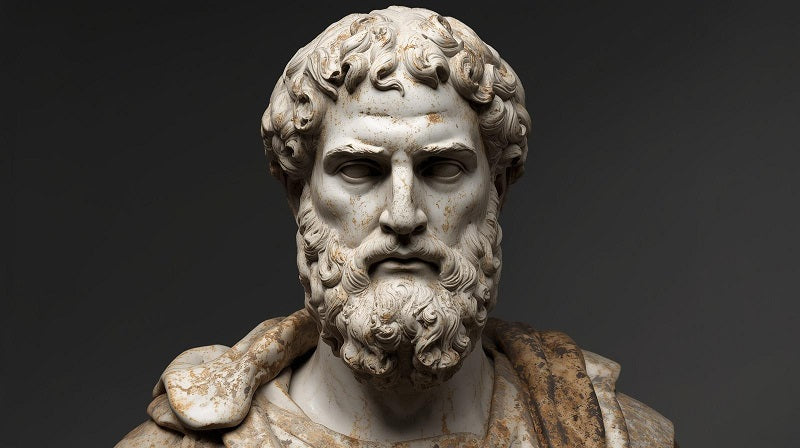
Who was Epictetus?
When we think of the Stoic philosopher Epictetus, you may imagine a calm, wise man teaching about self-control and inner freedom. But behind that image lies one of the most remarkable life stories in ancient philosophy – a man born a slave who went on to become one of the greatest teachers of human resilience.
From slave to Stoic sage
Epictetus was born around AD 50 in Hierapolis, a city in what is now Turkey. His very name means “acquired one” in Greek – an echo of his status as being property, rather than a person.
That’s right. He was enslaved in Rome under a powerful official named Epaphroditus, who served Emperor Nero. Yet even in bondage, Epictetus pursued the one thing no one could take from him: his mind.
He studied under the Stoic philosopher Musonius Rufus, and through his teachings discovered the central Stoic belief that while life’s events are beyond our control, our responses are always within it. After gaining his freedom, Epictetus began teaching in Rome until Emperor Domitian expelled philosophers from the city. He fled to Nicopolis, Greece, where he founded a thriving school that would attract students from across the empire.
His pupil Arrian carefully recorded his spoken lessons in what became The Discourses and the Enchiridion (“The Handbook”) – texts that have guided thinkers, leaders, and seekers of peace for nearly two thousand years, and are the inspiration behind my Epictetus art for the heart, mind and home.
Inspirational, isn’t it? And we haven’t really gotten into his teachings yet…
Philosophy of control and choice
At the heart of Epictetus’s philosophy lies one revolutionary idea: freedom is an inner condition, not an external circumstance.
He famously said:
“It’s not what happens to you, but how you react to it that matters.”
This wasn’t just abstract theory. Epictetus also lived what he taught. He knew pain, limitation, and social injustice first hand – and yet he insisted that our character, not our circumstances, define who we are.
He taught his students to focus only on what is within their control: their judgments, desires, and actions. Everything else – wealth, status, other people’s opinions – is ultimately indifferent.
As he put it:
That simple mindset shift remains one of the most powerful mental tools ever offered by Stoicism.
Strength through adversity
Epictetus believed that hardship reveals who we truly are. “Difficulty shows what men are,” he said.
In other words, to him, struggle was not punishment – it was character building. Life’s tests, he believed, were opportunities to strengthen our reason, patience, and courage.
He was equally blunt about the dangers of caring too much about others’ opinions.
“If you want to improve, be content to be thought foolish and stupid.”
To follow wisdom, one must sometimes walk alone. Self-discipline, integrity, and emotional independence aren’t optional – they are the marks of a free soul.
And that, perhaps, is Epictetus’s most enduring lesson for all of us:
“No man is free, who is not master of himself.”
Epictetus’s legacy outlived empires
Epictetus died around AD 135, but his influence still endures to this very day. His teachings shaped the thought of Marcus Aurelius, inspired early Christians, guided Renaissance scholars, and echo today in modern psychology – especially cognitive behavioural therapy, which borrows his idea that it’s not events but our thoughts about them that disturb us.
In our anxious, fast-paced world, his words feel as fresh as ever. Stoicism, once the philosophy of emperors and exiles, has become a philosophy for everyone – for anyone who wants peace in the midst of chaos.
Epictetus reminds us that true power lies not in possessions or status, but in perspective. We cannot command fortune, but we can command ourselves.
Epictetus’ words of wisdom live on in beautifully designed quote posters. Check out the full range of Epictetus quotes here.
